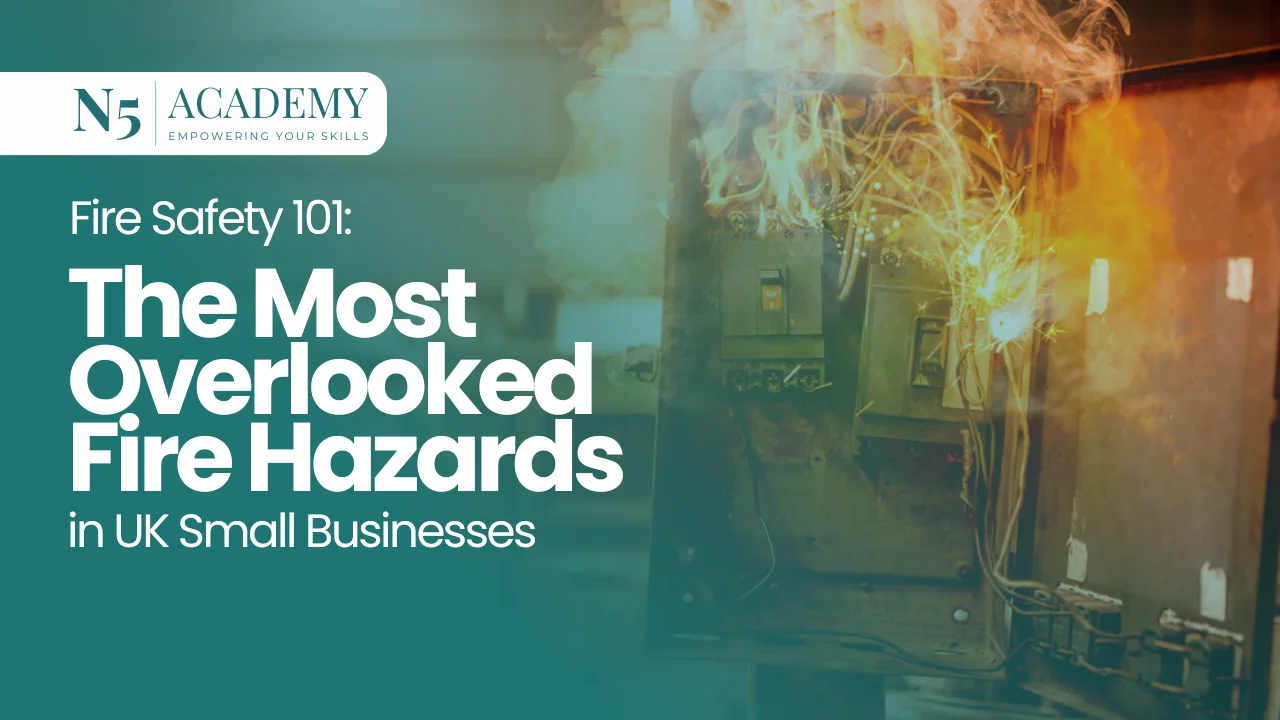

Running a small business in the UK can be hectic, and fire safety often gets ignored. However, ignoring fire risks can lead to serious problems, including damage to property and loss of life. Fires in small businesses can start from common issues like overloaded sockets, blocked exits, or cluttered storage areas. These hazards are easy to overlook but can be very dangerous. By identifying these risks early and making simple changes, you can help ensure a safe workplace and prevent accidents.
Electrical appliances are essential for small businesses, powering everything from computers to kitchen tools. However, one common fire risk comes from misusing electrical outlets, a problem that often goes unnoticed until it’s too late.
Overloading sockets, using damaged wires, or connecting too many extension cords can cause overheating and fires. Due to high demands in industries like retail, hospitality, and food services, makeshift electrical setups are common. While these setups may save time, they create serious safety risks.
Improper electrical setups can also disrupt business operations and raise insurance costs. Faulty wiring or old equipment increases the chances of electrical problems, which can lead to bigger incidents.
Join our Fire Marshal Training Course to learn how to manage electrical risks effectively.
When ignored, storage rooms can easily become fire hazards. Many small businesses don’t realise how dangerous clutter, including flammable items and blocked exits, can be.
Flammable materials like cardboard, paper files, and packaging can catch fire quickly, spreading flames throughout a building in minutes. Clutter can also block fire extinguishers and alarms, making it harder to respond during an emergency.
By following these steps, you will improve fire safety compliance in the UK and enhance workplace safety. For more specific strategies, check out Fire Safety Courses in Romford.
Fire safety tools like extinguishers, alarms, and sprinklers are important for stopping small fires from becoming big disasters. Many businesses do not maintain this equipment properly.
Neglecting fire equipment can result in legal issues, denied insurance claims, and more liability. Well-maintained equipment protects your business.
Enroll your staff in our Fire Marshal Training in Romford. This will help everyone respond quickly during emergencies.
Workplace kitchens are often ignored in fire safety plans, even though they can be very dangerous. Unattended cooking and grease buildup create serious risks that need to be addressed.
These steps can greatly lower the risk of fires in kitchen workplaces, keeping everyone safe and meeting safety rules. Our Fire Safety Courses provide detailed advice specifically for high-risk areas like kitchens.
Clear fire escape routes are crucial for quick evacuations. Many small businesses neglect these important paths, raising risks in emergencies.
Improve your emergency readiness with training from our Fire Marshal and Fire Safety Course. This course highlights the need for clear evacuation plans.
Fire safety is very important for small businesses in the UK, but it’s often ignored. By fixing common fire risks, like messy storage and poorly maintained equipment, you can keep your team safe and meet UK fire safety rules.
Take action now by checking out our Fire Safety Courses in Romford. Make sure your business is ready, follows the rules, and can handle emergencies well.
We help you forge a successful career in health and safety. We’re a UK-based company providing top-notch safety training courses that adhere to industry standards.